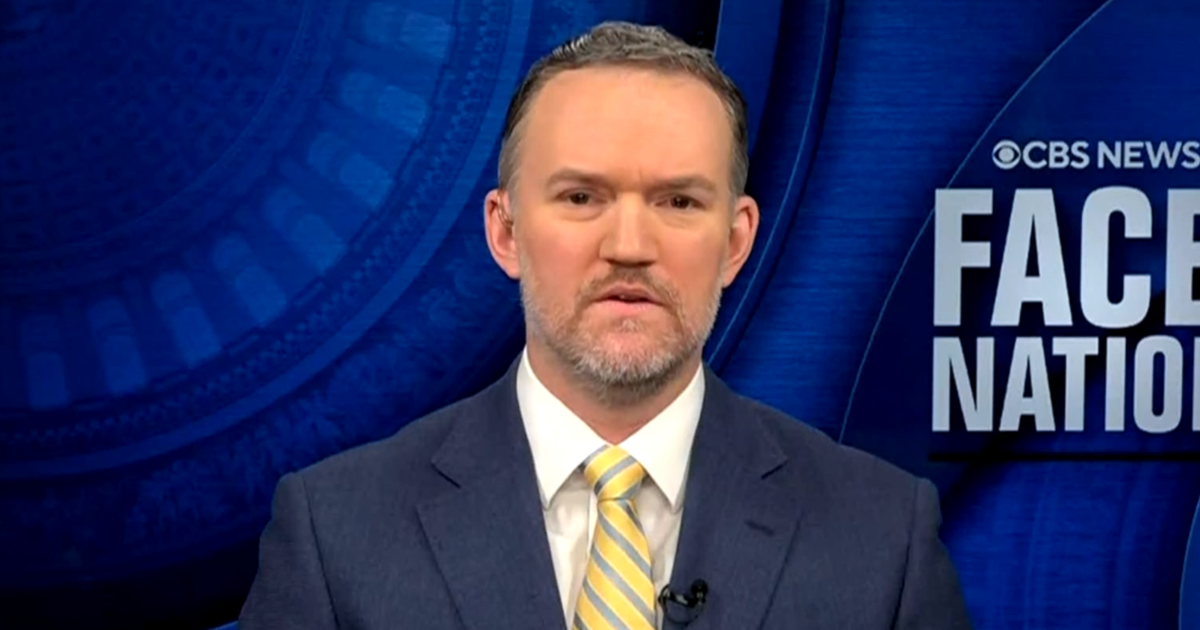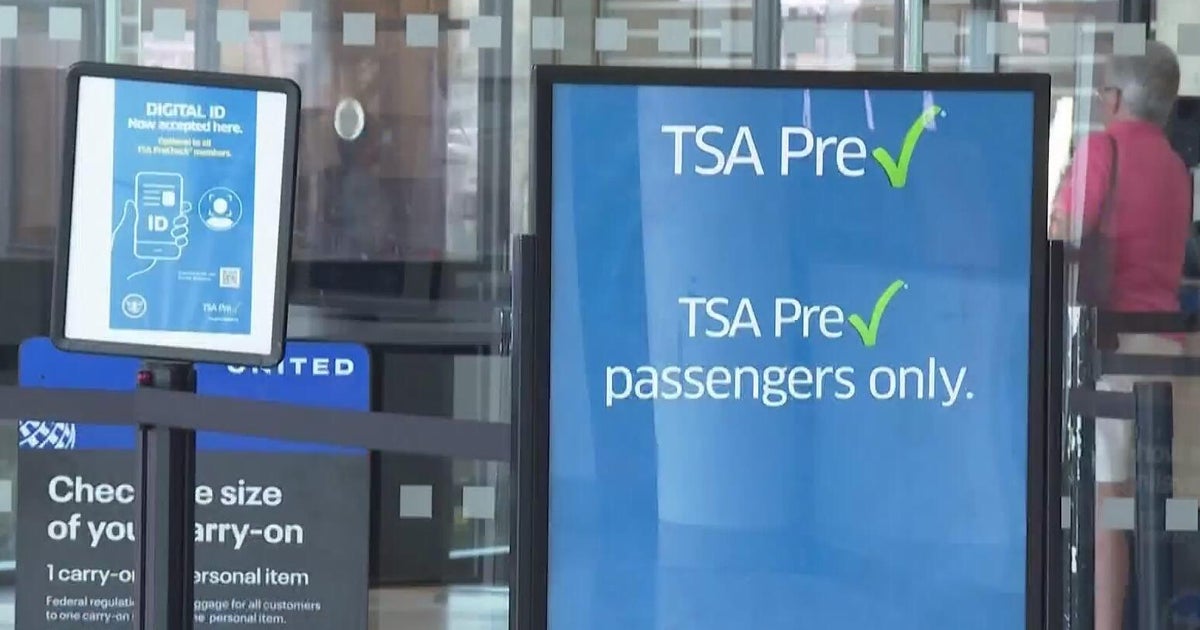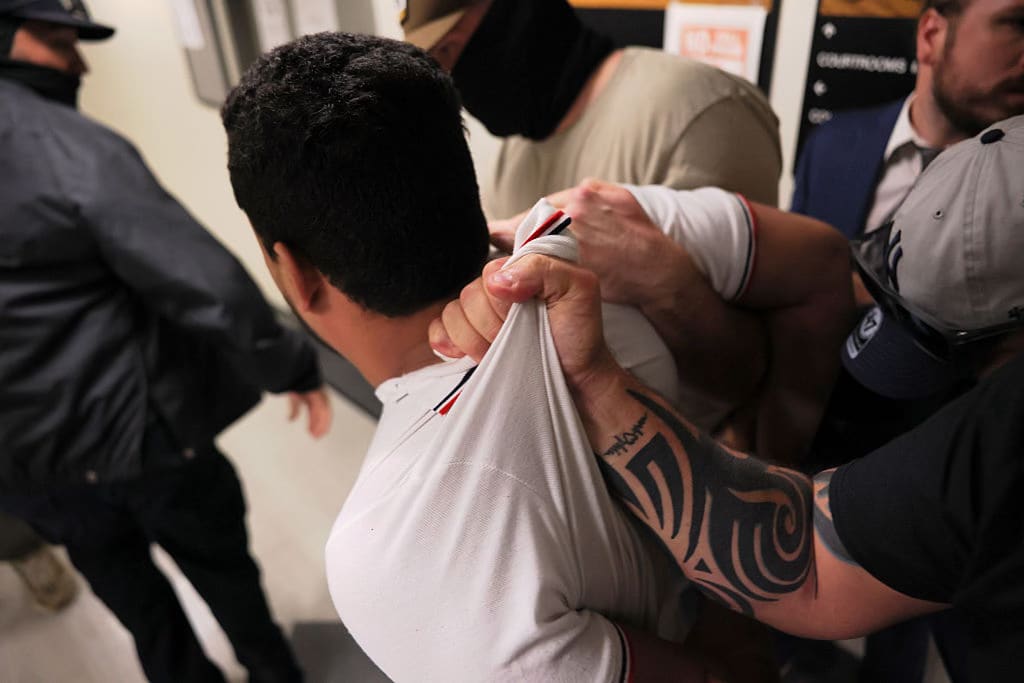Transcript: Homeland Security Secretary Alejandro Mayorkas on "Face the Nation," March 3, 2024
The following is a transcript of an interview with Homeland Security Secretary Alejandro Mayorkas that aired on March 3, 2024.
MARGARET BRENNAN: And we turn now to America's immigration challenges. A U.S. official tells CBS News that border patrol agents recorded nearly 140,000 migrant apprehensions in between ports of entry in the month of February, an increase from 124,000 in January. That doesn't include asylum seekers or those who were processed at a port of entry. Joining us now is the Homeland Security Secretary Alejandro Mayorkas. It's good to have you here in person, sir.
DEPARTMENT OF HOMELAND SECURITY SECRETARY ALEJANDRO MAYORKAS:Good morning, Margaret. Thanks for having me.
MARGARET BRENNAN: We know that immigration is a key issue for voters across the country. And according to our polling, by more than five to one, voters believe President Biden's policies will lead more migrants to try crossing the border compared with President Trump's policies. Only 22% think your policies will decrease migrant crossings. President Biden himself has said, border hasn't been secure in 10 years. Is there anything he can do without Congress to act now?
SECRETARY MAYORKAS: Margaret, we as an administration have taken executive actions, those executive actions are being litigated. We do need Congress to act. For more than three decades, our system has been broken. A bipartisan group of senators have put forth a real solution that would provide the Department of Homeland Security and other departments and agencies involved in the immigration system with resources that we need, as well as policy changes that will fix this system. We need Congress to act. That is the enduring solution.
MARGARET BRENNAN: But Congress won't act, as you saw. That proposal, which we covered extensively on this program, isn't moving forward in the Senate and no future at this point in the House. And it has been reported that immigration and that ICE is drafting plans to release migrants and slashing capacity to hold detainees because that Senate bill, and the funding that was in it, failed.
SECRETARY MAYORKAS: That's inaccurate.
MARGARET BRENNAN: That's inaccurate? That was in the Washington Post and that is not true?
SECRETARY MAYORKAS: That is- that is inaccurate and let me- let me say that--
MARGARET BRENNAN: Will you have to reprogram funds?
SECRETARY MAYORKAS: --since we- we have done- we have reprogrammed funds in the past, because we have not been adequately resourced. Again, emphasizing the importance of the legislation that would provide not only more personnel and more resources for Immigration and Customs Enforcement, but 1,500 personnel for US Customs and Border Protection. 4,300 asylum officers, this is vitally important. But in terms of enforcing our law, with the resources we have, since May of last year, we have removed or returned more people than in any entire year since 2015. Over the last three years, we've removed, returned or expelled more people than in the four years of the prior administration. We are doing more with less, but we need more, and we need the system fixed. President Biden said it very frankly, and very powerfully, from Brownsville, Texas, just a few days ago. We need Congress to have a spine, do its job, which is work for the American people. And rather than allow a problem to fester for political reasons to actually deliver the solution that everyone agrees is needed.
MARGARET BRENNAN: Short of this massive change of heart in Congress and productivity, CBS is reporting that the President is considering executive action and invoking executive authority 212(f), I believe it's called, to suspend the entry of foreigners when it's determined their arrival is not in the best interest of the country. If your agency is so strapped in terms of resources, could you implement that?
SECRETARY MAYORKAS: Margaret, we've taken executive actions. Former President Trump invoked 212(f), a statutory provision, and that was enjoined by the courts. And so when administrative actions are taken, they are often litigated, and they do not endure. The American people deserve and expect enduring solutions and Congress needs to deliver on the American public's expectations.
MARGARET BRENNAN: Do I understand you saying there then that you would have reservations about trying to use this same authority that the Trump administration had tried to use?
SECRETARY MAYORKAS: No, that's not- that's not what I'm saying. We have an obligation to consider all options, as we do day in and day out. But those options are not going to deliver what legislation would. We cannot administratively provide nearly $20 billion to the Department of Homeland Security and the Departments of State and Justice to make our immigration system work better and to stop the ever-increasing immigration case court backlog that has been building year after year after year. We can't- we can't administratively give the resources that we need. You need Congress to appropriate.
MARGARET BRENNAN: Congress controls the purse strings. But I want to ask you about a- a criminal case that has become a political rallying point. You heard Donald Trump use this phrase, "migrant crime". A 22 year old nursing student—I know you've been following this—Laken Riley, in the state of Georgia, was murdered allegedly by an undocumented Venezuelan migrant. The suspect had been detained by Border Patrol upon crossing, released with temporary permission to stay in the country. He then went on allegedly to commit crimes twice, once in New York for driving a scooter without a license, and once in connection with a shoplifting case in Georgia. Did those states and their law enforcement communicate to the federal government that this had happened? Should this man have been deported?
SECRETARY MAYORKAS: A few thoughts. First, Margaret, first and foremost, an absolute tragedy. And our hearts break for and our prayers are with the family, number one. Number two, and importantly, as a prosecutor, having prosecuted violent crime and other crimes for 12 years, one individual is responsible for the murder, and that is the murderer. And we work very closely with state and local law enforcement to ensure that individuals who pose a threat to public safety are indeed our highest priority for detention and removal.
MARGARET BRENNAN: But are you saying there that the federal government had been informed about this individual and the alleged crimes he had committed in those states? Because he could have been deported if that was the case. Was there a breakdown in the system?
SECRETARY MAYORKAS: So, Margaret, there are a number of cities around the country that have varying degrees of cooperation with the immigration authorities. We firmly believe that if--
MARGARET BRENNAN: And New York did not?
SECRETARY MAYORKAS: --we firmly believe that if a city is aware of an individual who poses a threat to public safety, then we would request that they provide us with that information so that we can ensure that that individual is detained if the facts so warrant.
MARGARET BRENNAN: And it sounds like they were not coordinating.
SECRETARY MAYORKAS: Well, different cities have different levels of cooperation. We were not notified in this instance.
MARGARET BRENNAN: Mr. Secretary, so much more to talk to you about. We hope you'll come back in the future.
SECRETARY MAYORKAS: Thank you so much, Margaret.
MARGARET BRENNAN: "Face the Nation" will be back in a minute. Stay with us.



